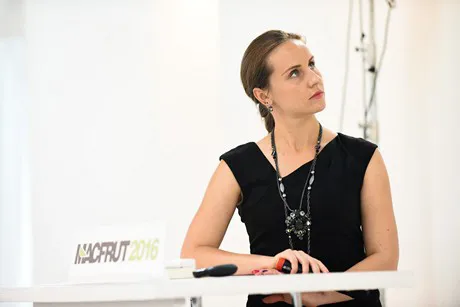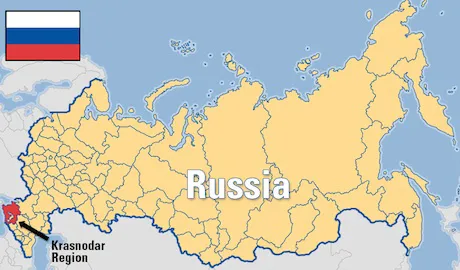
Evgeniya Kravchenko during the convention at Macfrut.
"On the contrary, Italians can and do gain a lot from Russia - Evgeniya Kravchenko, marketing and food promotion expert, affirmed, during a convention at the Macfrut event in Rimini. "The fruit and vegetable sector is developing more than other fields". Krasnodar is the region where fruit and vegetable growing is most developed.

Russia has renewed its decision to limit importation and become more self-sufficient, but is also allowing foreign countries make investments.
In 2014, the Russian government approved more than 500 foreign investment projects.
Evgeniya concluded "Russia's priority is to finance the construction of greenhouses to produce vegetables for a longer period and to develop their infrastructures and logistics. The government will pay 20% of the expenses to build the greenhouses, from 3 to 30 hectares. Material can be imported up to 70%".
